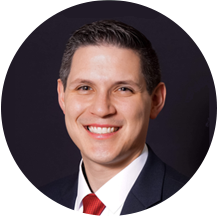USCIS recently posted an “Alert” on its Public Charge website regarding the Coronavirus Disease 2019 outbreak (COVID-19) that encourages everyone with symptoms (fever, cough, shortness of breath) to seek necessary medical treatment or preventive services. This also includes noncitizens experiencing those symptoms. USCIS stated that such “treatment or preventive services will not negatively affect any alien as part of a future Public Charge analysis.” (For more information on the Public Charge Rule, please go to “The public charge rule is back (for now)” by Joshua J. Despain)
During this time of uncertainty, many noncitizens are legitimately concerned about their health, the economic situation, their job security, among other things. By issuing this “Alert,” USCIS is attempting to provide some form of relief on the potential use of some public benefits to deal with the situation we currently live in.
How does this affect benefits received through Medicaid?
The Public Charge rule does not restrict access to testing, screening, or treatment of communicable diseases, including COVID-19. USCIS will neither consider testing, treatment, nor preventative care (including vaccines, if a vaccine becomes available) related to COVID-19 as part of a public charge determination, even if such treatment is provided or paid for by one or more public benefits, as defined in the rule (e.g. federally funded Medicaid).
Keep in mind that the Public Charge rule does not include CHIP (Children’s Health Insurance Program), or State, local, or tribal public health care services/assistance that are not funded by federal Medicaid.
USCIS also mentioned that if a noncitizen who lives and works in a place where there are disease prevention methods such as social distancing or quarantine, or where his or her employer, school, or university voluntarily shuts down operations to prevent the spread of COVID-19, the noncitizen may submit a statement and other relevant documentation with his or her application for adjustment of status to explain how such methods or policies have affected him or her as relevant factors USCIS must consider in a public charge inadmissibility determination.
Does the public charge rule include receiving unemployment compensation benefits?
No. USCIS explicitly excludes unemployment benefits from the list of public benefits that USCIS considers in a public charge inadmissibility determination. Each state has its own rules regarding unemployment benefits that apply to both U.S. citizens and foreign nationals. These are some of the general eligibility requirements:
- The worker must be unemployed through no fault of their own.
- The worker must have enough wages earned or hours worked to establish a claim.
- The worker must be able and available to work and must be looking for, and not refuse, suitable work.
When noncitizens apply for any kind of unemployment compensation benefits, depending on the state, they might be asked to show an Employment Authorization Document (EAD), a social security card, and documents to prove the immigrant category he or she belongs to. The noncitizen must show that he or she was in satisfactory immigration status and was authorized to work in the United States when earning the wages used to establish a claim as well as proof that he or she is currently in satisfactory immigration status and is authorized to work each week that he or she claims benefits.
Federal laws and the Department of Labor permit significant flexibility for states to amend their laws to provide unemployment insurance benefits in multiple scenarios related to COVID-19.
At Wilner & O’Reilly, we can help clarify whether you or your relatives may be subject to the public charge inadmissibility determination and whether you may apply for some public benefits during the COVID-19 outbreak and recovery. We are available to help you navigate through these recent changes on the public charge rule. We offer free consultations at our offices in Orange, Fresno, Riverside, Sacramento, and San Francisco, California; Salt Lake City and Orem, Utah; and Boise, Idaho.
ABOUT THE AUTHOR(S)
MAURICIO TORRES SANCHEZ – ATTORNEY

Mauricio Torres is an associate attorney at Wilner & O’Reilly | Immigration Lawyers in Salt Lake City, UT. He is admitted to the California State Bar. A native of Cali, Colombia, Mr. Torres graduated from the School of Law at the National University of Colombia where he earned his Bachelor of Laws. In addition, he earned a Master of Laws (LL.M.) from the J. Reuben Clark Law School at Brigham Young University in Provo, Utah. Having gone through several consular interviews and visa applications himself, Mr. Torres understands the difficulties many immigrants face, which allows him to help others navigate the immigration system. He devotes his practice to family-based immigration, nonimmigrant visas (such as U, T, student, and tourist visas), waiver applications, and consular interviews. Mr. Torres is fluent in English and Spanish.
RICHARD WILNER – FOUNDING PARTNER

Richard M. Wilner is a founding member of Wilner & O’Reilly|Immigration Lawyers and is Board Certified by the State Bar of California as a Specialist in Immigration and Nationality Law. He is admitted to practice law in the State of California and before the U.S. District Courts for the Central, Northern and Southern Districts of California, the Northern District of Texas, the U.S. Court of Appeals for the Ninth Circuit and the U.S. Supreme Court.Mr. Wilner has received the coveted Martindale-Hubbell AV Rating, the highest legal and ethical rating that one can receive from one’s peers in the legal community. Similarly, he has been awarded the title of Super Lawyer from 2007 to the present. He is best known for his work in advising Fortune 500 companies, middle and small market businesses, entrepreneurs and foreign nationals of extraordinary ability in athletics, arts, and sciences in the complex area of U.S. Immigration and Nationality Law.



Comments are closed.